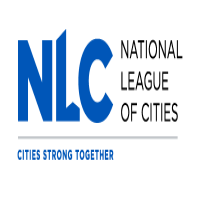National League of Cities Expresses Concerns About Trump Budget Bill

As the Trump administration’s “H.R. 1, One Big, Beautiful Bill” now works its way through the Senate, officials with the National League of Cities (NLC) are informing their members about key impacts that will affect federal financial assistance going to cities and towns nationwide.
In a recent release, Michael Wallace, NLC legislative director for housing, community and economic development and federal Advocacy, discussed “what is at stake for local governments,” adding that “this sweeping legislation touches nearly every corner of municipal finance and services.”
Among some of the topics Wallace discussed included the following:
- The bill would repeal unobligated funds for Neighborhood Access and Equity Grants for transportation and economic development projects and clean energy improvements enacted under the Inflation Reduction Act that local governments are eligible to receive.
- The bill would place new limitations on Medicaid eligibility could force states to make tough budget choices impacting funding for local governments. Changes to Medicaid would include new work requirements and shifting more costs to states, especially for those that have adopted federal-state cost-sharing for Medicaid expansion (40 states have adopted Medicaid expansion), which would lead to an estimated reduction of $700 billion in federal Medicaid spending over the next 10 years. States would be forced to choose between increasing state spending to continue coverage for up to 13 million people at risk of losing health insurance because of federal spending reductions, or making cuts in other areas including programs that provide state funding for local governments.
- Changes to the Supplemental Nutrition Assistance Program (SNAP) would also impact state budgets. Such changes would include imposing new work requirements and shifting costs to states for the first time, leading to similar concerns about pressures to decrease state funding in other areas including funds for local governments. Currently SNAP benefits are fully covered by the federal government.
- Wallace also noted that the bill omits the requirement to allocate 20% of new Highway Trust Fund revenues to mass transit projects. The bill imposes a new electric vehicle fee that would go into the federal Highway Trust Fund. Traditionally, 20% of Highway Trusts Funds are allocated to mass transit projects including those carried out by local governments. However, unlike prior revenue increases for the Highway Trust Fund, the bill does not mandate 20% of revenues raised by the new fee be dedicated to mass transit projects.
There are numerous other concerns Wallace addressed in his article. City officials need to make their concerns known to Congress if they are fearful about the local impact to their communities.
Join us for our following Thompson Grants event:
Thompson Grants Virtual Workshop: Audits 2025 | July 17, 2025 | Virtual Event



